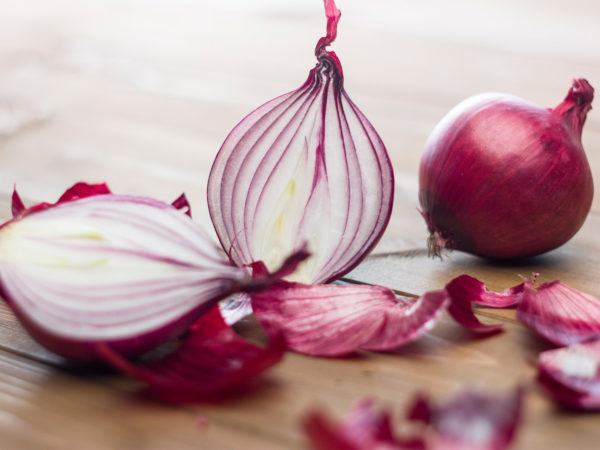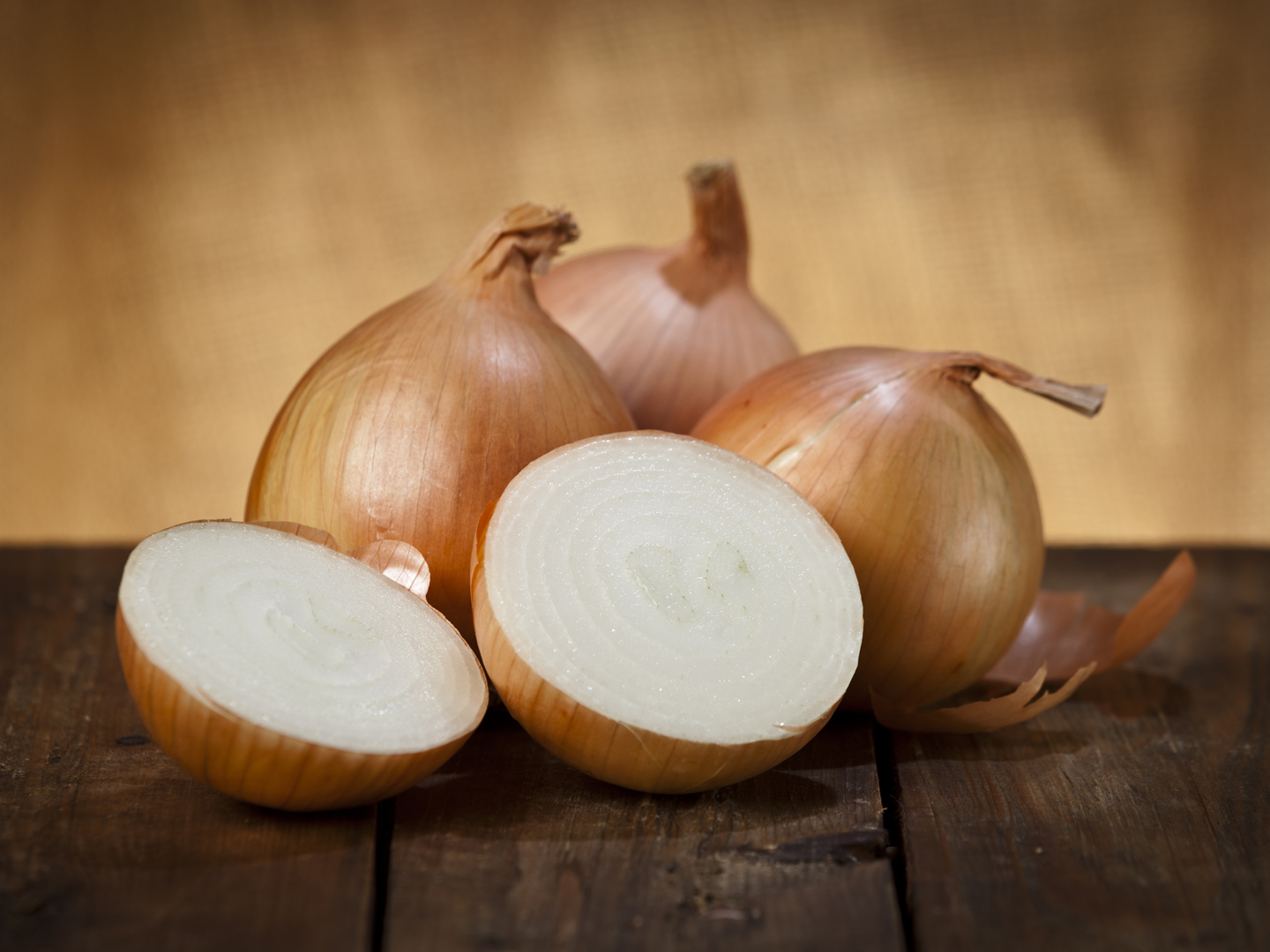Can Red Onions Fight Cancer?
I’ve been told that red onions can kill cancer cells and might protect against cancer. Could this be true?
Andrew Weil, M.D. | September 4, 2017

Some recent research suggests that substances in red onions can help kill cancer cells. But so far this has only been seen in the laboratory. Researchers at Ontario’s University of Guelph have published a study showing that certain compounds in red onions do a better job of killing breast and colon cancer cells than four other types of onions they researched. The variety they tested is Ruby Ring, which is grown in Ontario. The researchers credit the onions’ high concentration of the flavonoid quercetin with the cancer killing effects, along with anthocyanins, antioxidant pigments that impart dark colors to many fruits and vegetables. They reported that onions grown in Ontario also have particularly high levels of quercetin.
In the study, cancer cells were placed in direct contact with quercetin extracted from the five types of onion tested. The researchers wrote that constituents from onions promote an unfavorable environment for cancer cells and disrupt communication between the cells, inhibiting their growth and leading to cell death. They noted, however, that human trials are now needed to see if the quercetin and anthocyanins really can help treat cancer or protect against it. The research team is also working on a technique to extract quercetin from onions without the use of chemicals so it can be used in dietary supplements and added to foods.
These are interesting findings, but we’ll have to see whether the effects seen in the lab hold true in humans. In general, the flavonoids in onions have been shown to have a variety of anti-inflammatory and cardiovascular benefits. When eating onions, keep in mind that flavonoid concentrations tend to be higher in the outer layers, so peel off as few of these as possible during preparation.
The idea that onions are capable of warding off disease is ancient one that goes back to the days before people knew that invisible microorganisms were responsible for illness. During the Black Death (an epidemic of bubonic plague) in the 14th century, many people believed that onions could help protect them. They thought plague was caused by exposure to “miasma,” a poisonous mist, and that strongly scented materials could absorb the dangerous vapor. A more recent version of the myth is a story about a farm family that came through the great influenza pandemic of 1918 unscathed as a result of putting onions in every room of the house.
Even today, you can find postings on the Internet alleging that onions can protect health by attracting and absorbing dangerous bacteria and viruses. There is no truth to this.
Nonetheless, I encourage you to include onions and their relatives (garlic, scallions, shallots, leeks, and chives) in your diet. All are good for you.
Andrew Weil, M.D.
Source:
Abdulmonem I. Murayyan et al, “Antiproliferative activity of Ontario grown onions against colorectal adenocarcinoma cells.” Food Research International, June 2017; DOI: 10.1016/j.foodres.2017.03.017












